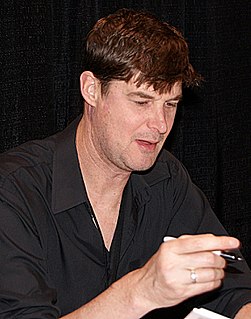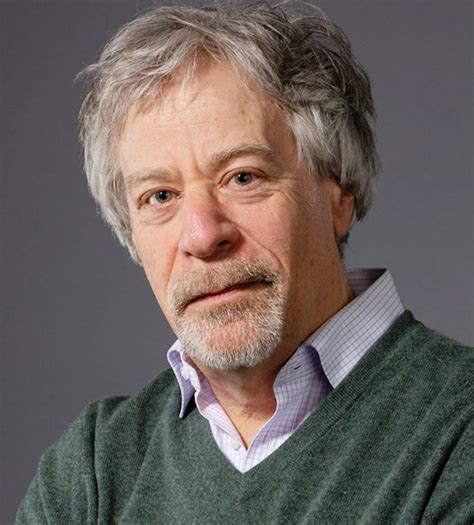A Quote by Evangeline Lilly
'Why are we here?' 'What is our purpose? 'Is there an afterlife?' 'Is there a God?' 'Is it all about science?' Those are big questions, and usually, TV is a little scared to go there.
Related Quotes
If you don't put the spiritual and religious dimension into our political conversation, you won't be asking the really big and important question. If you don't bring in values and religion, you'll be asking superficial questions. What is life all about? What is our relationship to God? These are the important questions. What is our obligation to one another and community? If we don't ask those questions, the residual questions that we're asking aren't as interesting.
The cool thing about Watchmen is it has this really complicated question that it asks, which is: who polices the police or who governs the government? Who does God pray to? Those are pretty deep questions but also pretty fun questions. Kind of exciting. It tries to subvert the superhero genre by giving you these big questions, moral questions. Why do you think you're on a fun ride? Suddenly you're like how am I supposed to feel about that?
What does purpose mean? It means the deepest desire for our short lives to mean something. . . . To speak a language of purpose is to return to first principles and to be able to answer, in plain English, the plain questions of Why? Why should we chip in to help someone else? Why should we defer gratification? Why should we care about the long term? Why should we trust anyone who seems to be limiting our ability to do what we want?
Aristocratic depression has this cosmic dimension to it, where it's asking these big questions about, "Why?" "What is the purpose of all this?" Neuroses of the middle class is the banishment of aristocratic depression, because it's kind of this obsession with quotidian detail that pushes these larger questions away.
I think you should enjoy this life that you are given on this earth because we really don't know what it is in the afterlife. We can definitely prove that this life is this life here because we wake up every day and do the same thing that we do. The afterlife I'm not so sure about. So, I don't understand why you'd want to hurt other people in thinking that you'll go on in the afterlife to have bliss. I just don't understand it.
Whence came I, whither go I? Science cannot tell us a word about why music delights us, of why and how an old song can move us to tears. Science is reticent too when it is a question of the great Unity – the One of Parmenides – of which we all somehow form part, to which we belong. The most popular name for it in our time is God – with a capital ‘G’. Whence come I and whither go I? That is the great unfathomable question, the same for every one of us. Science has no answer to it.
For those who believe in God, most of the big questions are answered. But for those of us who can't readily accept the God formula, the big answers don't remain stonewritten. We adjust to new conditions and discoveries. We are pliable. Love need not be a command nor faith a dictum. I am my own god. We are here to unlearn the teachings of the church, state and our educational system. We are here to drink beer. We are here to kill war. We are here to laugh at the odds and live our lives so well that Death will tremble to take us.
I think a lot of people do have questions about life, 'What's the purpose of my life?', 'What's the meaning of my life?', 'Why am I here?' ... It's hard to find a place where you can discuss those issues. You can't go down to the pub and say, 'What do you think the meaning of life is?' But actually, most people have those questions, somewhere in the back of their minds. And if you can find a place where you can discuss it with a group of people who, like you, are outside of the Church, and it's a non-threatening, relaxed environment, quite a lot of people want to do that.



































